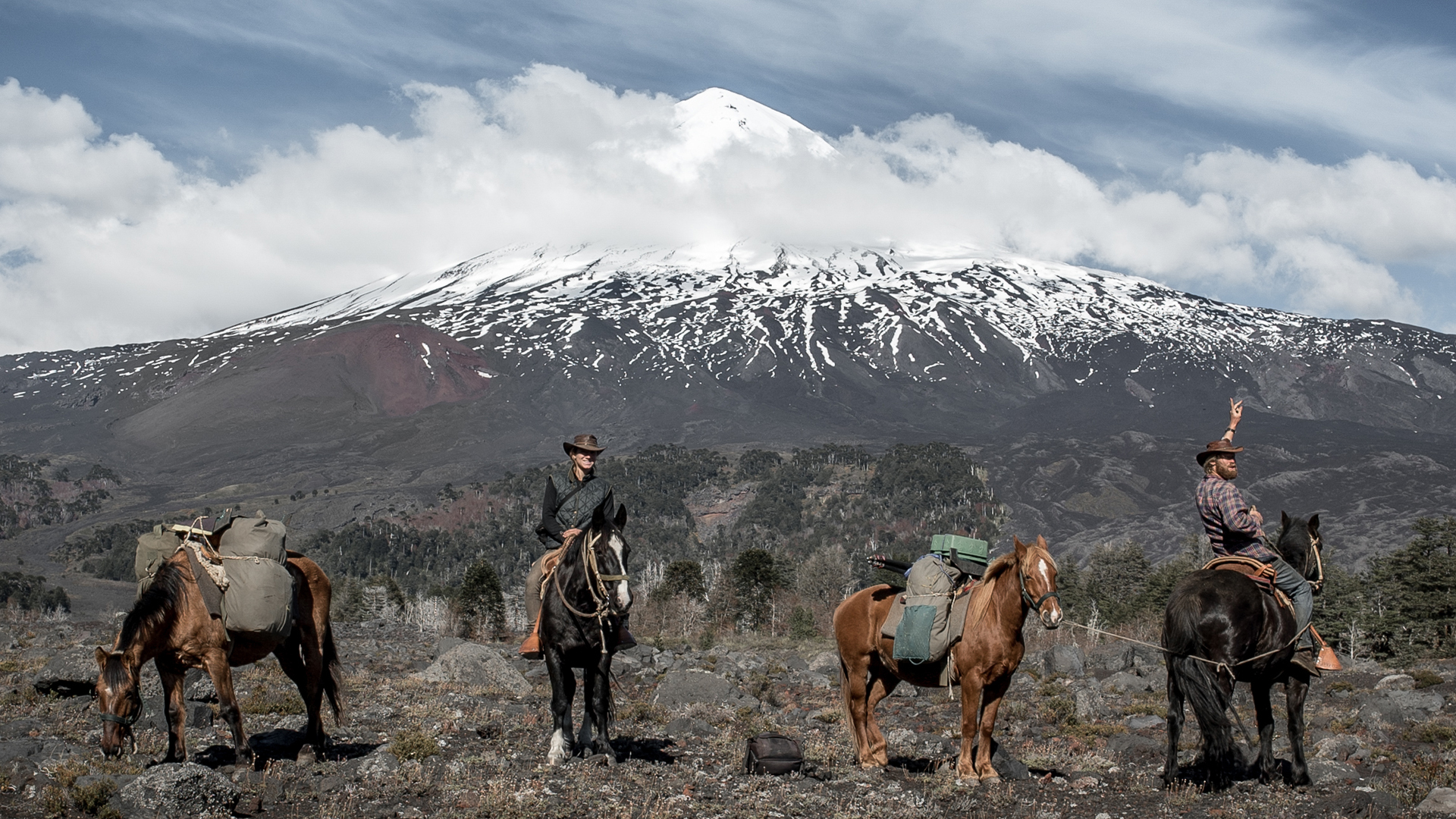

There’s a line in the film where one of the islanders says they work as much as they need, and they don’t get our obsession with working all the time
Yeah, they laugh at us, and our Western work ethic, always rushing around. Their favourite expression is: “Moile, moile,” which means: “Slowly, slowly.” For them, if you’re rushing in the rainforest, very often you’ll stand on sharp things, or you might not see the deadly snake. You’ll also upset the spirits of the rainforest because you’re not paying attention and keeping your soul in a content and balanced state.
When you were travelling down the west coast of the Americas, you met a lot of locals with a deep connection to the land and nature.
Yes, we did. I was actually born in England myself, and there’s been this kind of dominating force that’s come out of England across the world. But long before that, there were lots of people who were really connected to the land and woven into place, and just as animist or indigenous, as the exotic Indonesian cultures we look at today.
The story of you and Heather is central to the film, was it stressful putting your relationship out there like that?
It is an odd one and there’s definitely this sense of vulnerability, putting something so personal out into the world, and wondering how people are going to receive it. But we – because Heather was on board and totally across everything – kept trying to come back to what felt really truthful.
The way we met was one of those bizarre things too because it was harvest-time where she lives in Tofino in British Columbia, so it was super busy for her. She took one weekend off that whole summer, and just happened to pop over to Vancouver Island and bump into me and now here we are, all living on the east coast of Australia, with a couple of kids.
What do you hope people might take away from watching the film?
I want people to try and feel into the relationship they have with the land or the ocean. It was such a powerful experience for us on this trip, especially the section where we travelled by horseback. The motorcycle thing was really fun, but it wasn’t until we got on the horses that people started interacting with us in a different way.
There was this reciprocity going on with the horses and us and the land and it culminated in a really deep experience for us. I wanted to try and capture that feeling, that feeling of freedom and beauty and interdependence with the natural world. I hope it might spark something in people so that the next time they’re sitting out in the ocean or climbing a mountain or even just sitting under a tree, they can reflect on the experience a bit more.
What’s been your biggest learning from making the film?
When I look back at the person I was, especially when I was working in Melbourne, I was really struggling and felt trapped, with so many psychological doubts around where I was heading in life. But then I took that leap to change my life in a big way and embark on the trip this film is centred on. I look at where I am now, and I think it’s amazing that it happened.
I would say to others who are thinking about a big change, it probably works out most of the time. It’s our own kind of fears of the unknown that can hold us back.
What projects are you working on next?
I’m about to start work on a new documentary with [outdoor clothing brand] Patagonia in Mentawai. Right next to the village you saw in my film, a big corporation backed by many billionaires wants to build a city and special economic zone. It’s a culturally and environmentally sensitive area, a national park, and a biodiversity hotspot but they’re gaining momentum for the development, which is pretty sickening. So hopefully we can raise awareness and help the fight on that.
The Road to Patagonia is on the Icon Film Channel for one month from May 30th, then at UK cinemas from June 27th.
Sam Haddad is a freelance writer who writes the newsletter Climate & Board Sports.
Buy your copy of Huck 81 here.
Enjoyed this article? Follow Huck on Instagram and sign up to our newsletter for more from the cutting edge of sport, music and counterculture.
Support stories like this by becoming a member of Club Huck.






